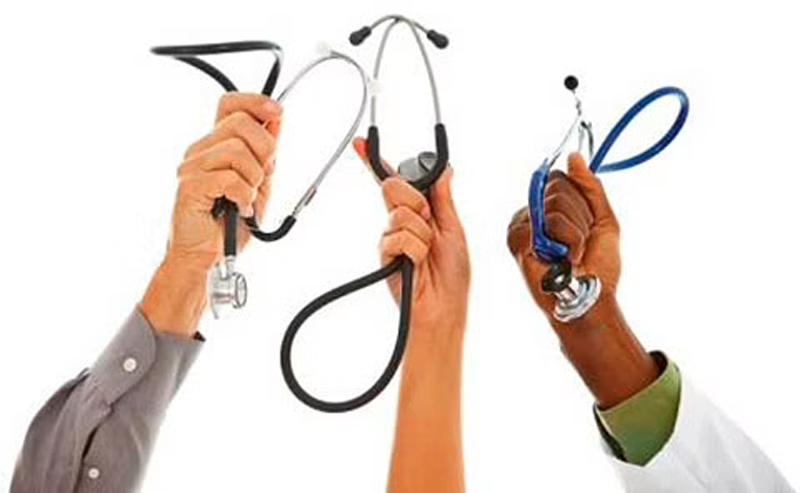Calls for increase in number of PET scans
Irfan Tramboo
SRINAGAR, Feb 7: The Expert Panel that earlier visited Kashmir hospitals on the directions of the High Court has pitched for the creation of two Medical Universities in the Union Territory of J&K to bring uniformity in academics while also suggesting the creation of Trauma and Emergency Medicine Departments as well as increasing the number of PET CT machine across the UT.
The panel, regarding the infrastructure in J&K, stated that there are 11 Medical Colleges and dozens of Nursing and Paramedical schools in UT, which it said, indicates an urgent need to create two Medical Universities in the UT.
“The creation of Medical University will bring uniformity in academics, examinations, degrees and induce competition among colleges; the creation of a University will expedite the working, disposal and lessen the burden on Secretariat,” the Panel said.
On the creation of the Trauma and Emergency Medicine Department, the Panel said that the same has become a necessity and recent years have witnessed the creation of such departments in the majority of Medical Colleges of the country.
“In fact, except SKIMS Soura, none of the present colleges of UT have such a department and the creation of such a department will promote Organ Donation. It will also pave the way for Solid Organ Transplantation in UT,” it said.
As per the Panel, the National Medical Council (NMC) has recommended courses in Emergency Medicine in every college. “This will create job avenues for Internists, Intensivists, Surgeons, Plastic surgeons, Orthopaedics, Neurosurgeons, and supporting support.”
Concerning the PET CT machine, the Panel in its report on the infrastructure has said that they were informed that there is only one PET CT machine in the whole of J&K in the Government facility.
“Many more need to be sanctioned. This will have great ramifications in the survival, economics and comfort level of patients who need to travel large distances for such an essential investigation in cancer cases,” the Panel said.
It also said that keeping in view a load of cancer patients in the region, “there should be at least one PET scan and MRI/CT machine in every college.”
Regarding SKIMS Soura, the Panel said that it noted with “disappointment” that Cardiology Department has a single Cath Lab which is almost 10 years old and can stop functioning at any time.
“Keeping a load of cardiac patients there is an urgent need for procurement of a new Cath Lab. Deptt of Gastroenterology which used to be one of the few best-equipped departments does not have a now adequate number of simple endoscopes, lacks endo-ultrasound, and many other essential types of equipment,” the Panel said.
Likewise, the Panel said that the MRI machine in Radiology is about 15 years old and old version. “Such is a state of affairs in many other departments in SKIMS Soura.”
The Panel also suggested the establishment of Private Wards across hospitals and said that none of the hospitals associated with Medical Colleges in UT has Private Wards even as the majority of medical colleges and institutes in the country have Private wards.
“Paid beds in Govt Colleges have advantages such as revenue generation, provide a separate room for those who desire such facility and can afford it; Paid beds will significantly reduce the movement of patients from UT to Delhi, Chandigarh, Amritsar, and other places,” the Panel said, adding at least 10% of beds in all hospitals should be as Private Wards.
About the e-Hospital and IT initiatives, the Panel said, except SKIMS Soura, e-hospital Services and IT Cells are almost non-existent in all colleges and pitched for the start of the same in all the medical colleges.
It is to be noted here that the committee comprising Prof Y K Chawla, former Director, PGI, Chandigarh, Prof Showkat Ali Zargar – former Director, SKIMS, Srinagar, Prof Kaisar Ahmad – former Principal, Govt Medical College, Srinagar, Prof Ravi Gupta- ex- Medical Superintendent, GMCH, Chandigarh visited the hospital across J&K last year on the directions of the High Court and was asked to submit its report.


